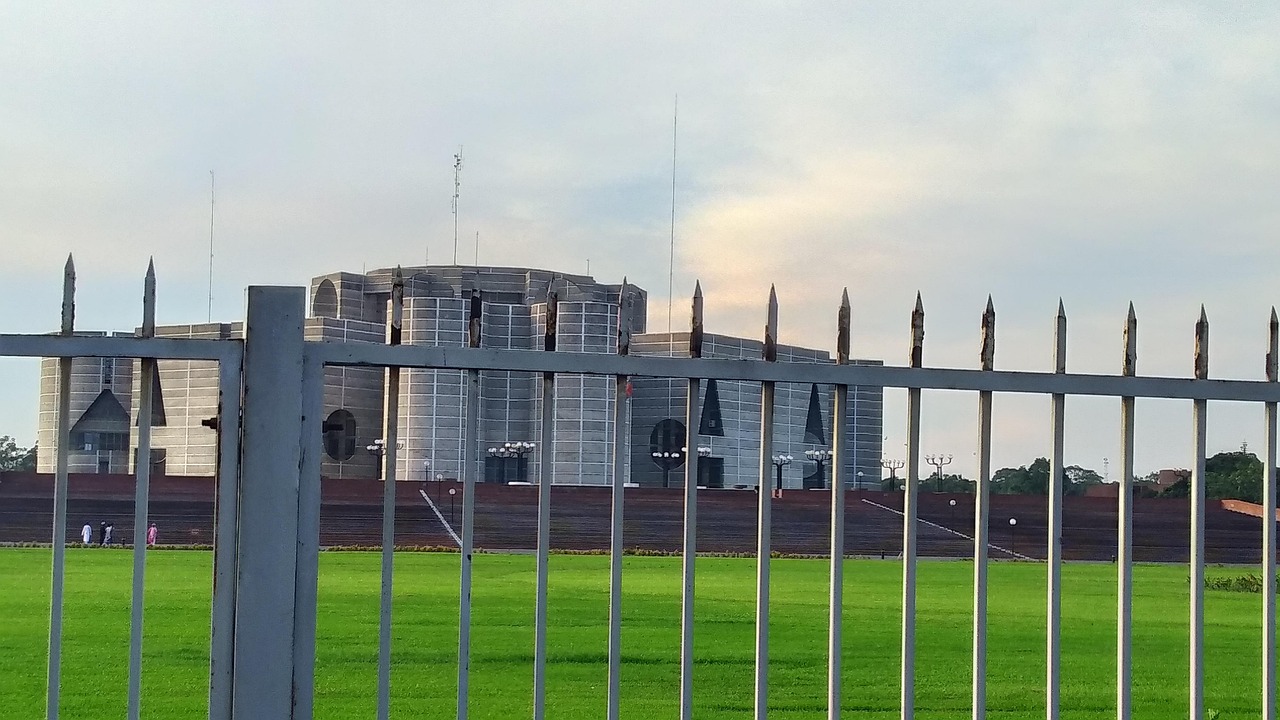Turkey’s deepening economic crisis in 2025, marked by high inflation, currency devaluation, and unemployment, is pushing women into unconventional income sources like OnlyFans, prostitution, and pornography. With an inflation rate exceeding 70% in 2024 and a lira that lost 30% of its value over the past year, many Turkish women, particularly young and urban, are turning to digital platforms and sex work to navigate financial precarity. However, Turkey’s conservative cultural norms and legal restrictions, including a 2023 ban on OnlyFans, create significant challenges. This article explores the economic drivers, social implications, and cultural parallels to Bangladesh, where economic pressures also shape women’s labor choices, particularly in the garment industry.
Turkey’s Economic Crisis: A Catalyst for Unconventional Work
Turkey’s economy has been in turmoil since 2022, with inflation peaking at 85% in 2023 and remaining high at 70% in 2024, driven by unorthodox monetary policies and political instability. The lira’s depreciation has eroded purchasing power, with basic goods like bread and fuel costing 50–100% more than in 2022. Unemployment stands at 9.5%, but underemployment and informal work are rampant, particularly for women, who face a 12.6% unemployment rate compared to 7.8% for men. The cost-of-living crisis, coupled with limited job opportunities in traditional sectors like textiles and retail, has driven women to seek alternative income sources.
The gig economy, including platforms like OnlyFans, has emerged as a lucrative option. Before its ban in June 2023, OnlyFans allowed Turkish women to monetize adult content, offering flexibility and high earnings compared to low-wage jobs. A 2025 study on Turkish OnlyFans creators notes that women, especially those aged 18–35, were drawn to the platform’s autonomy and potential earnings of $1,000–$10,000 monthly, far exceeding Turkey’s average monthly wage of $400. Prostitution and pornography, though illegal and stigmatized, have also seen upticks, with reports of underground networks and webcam modeling growing in urban centers like Istanbul and Ankara. Source: ResearchGate.
[](https://www.researchgate.net/publication/388102522_Sex_workers_content_creators_gig_workers_or_all_of_the_above_the_experiences_of_sex_workers_on_OnlyFans_in_Turkey)
Cultural Note: Similar to Bangladesh, where economic pressures push women into garment factories, Turkey’s crisis is reshaping female labor. In Bangladesh, the garment industry employs 4 million women, offering economic empowerment but low wages ($95/month). In Turkey, the lack of such a dominant sector leaves women with fewer options, making digital sex work a tempting, albeit risky, choice.
OnlyFans: A Banned but Persistent Platform
OnlyFans, a subscription-based platform launched in 2016, gained prominence in Turkey during the COVID-19 pandemic, when economic disruptions left many jobless. The platform allowed creators to earn 80% of subscription fees, attracting women facing financial hardship. A 2025 ResearchGate study highlights three factors driving OnlyFans’ appeal in Turkey: mainstream visibility through celebrity endorsements, platform features enabling privacy and boundary-setting, and economic necessity during the pandemic. Despite the 2023 ban, enforced due to “public morality” concerns, Turkish creators continue using VPNs to access the platform, risking legal repercussions under Law No. 5651, which regulates online content for obscenity and prostitution.
The ban reflects Turkey’s conservative shift under President Recep Tayyip Erdoğan’s AKP, which has tightened internet censorship since 2002. In 2024, 86.5% of Turks had internet access, but blocks on platforms like OnlyFans, Uber, and VPNs limit digital opportunities. Women using OnlyFans face charges of obscenity, as seen in the 2025 arrest of creator Azra Ay Vandan, charged for planning a live-streamed stunt deemed “damaging to national morale.” Despite these risks, the platform’s financial allure persists, with creators earning significantly more than in traditional jobs.
Comparison to Bangladesh: Bangladesh’s internet penetration is lower (40% in 2024), and platforms like OnlyFans are virtually nonexistent due to strict cultural and legal norms. However, economic desperation in both countries drives women to informal sectors, with Bangladesh’s garment workers facing exploitation similar to the precarity of Turkey’s digital sex workers.
Prostitution and Pornography: Underground Economies
Prostitution and pornography, though illegal in Turkey, have grown as economic pressures mount. Prostitution is criminalized under Article 227 of the Turkish Penal Code, with penalties of 1–3 years in prison, yet it thrives in Istanbul’s underground networks. Webcam modeling, a form of digital prostitution, has surged, with women using platforms like Chaturbate to bypass OnlyFans’ ban. These activities offer quick cash but expose women to exploitation, trafficking risks, and social stigma. A 2025 report notes that economic precarity, not choice, drives many women into sex work, with single mothers and students particularly vulnerable.
Pornography production, while legal in some contexts, faces strict regulation. Producing adult content is permitted, but distribution on public platforms is restricted, pushing creators to private channels or VPNs. The economic crisis amplifies this trend, as women with limited education or job prospects turn to these high-risk, high-reward sectors. Unlike OnlyFans, traditional pornography often involves third-party producers, reducing women’s control and increasing exploitation risks.
Cultural Note: In Bangladesh, prostitution exists in areas like Daulatdia but is heavily stigmatized, similar to Turkey. Both countries’ conservative values amplify the social cost for women in sex work, yet economic necessity overrides stigma, highlighting a shared struggle for financial survival.
Social and Gender Implications
Turkey’s gendered labor market exacerbates women’s economic vulnerability. Women make up only 33% of the workforce, concentrated in low-paid sectors like textiles (40% female) and care work. Patriarchal norms, which expect women to prioritize domestic roles, limit access to STEM and leadership positions. The 2025 Modern Diplomacy report notes that women spend four times more hours on unpaid care work than men, restricting their ability to pursue stable careers. Economic desperation thus pushes women toward OnlyFans and sex work, which offer flexibility but expose them to legal and social risks.
The social stigma of sex work in Turkey’s Muslim-majority society is profound, with 94% of the population identifying as Muslim. Women in these industries face ostracism, harassment, and legal persecution, as seen in the public backlash against Azra Ay Vandan. Yet, the economic crisis—coupled with a 15% female unemployment rate among youth—makes these risks a necessary trade-off for many. In Bangladesh, garment workers face similar stigma for working in factories, but their contributions are more socially accepted than sex work, highlighting a cultural divergence.
Challenges and Risks
Women engaging in OnlyFans, prostitution, and pornography face significant challenges:
Legal Risks: The 2023 OnlyFans ban and strict laws against prostitution and obscenity expose women to arrests and fines. VPN use, while common, is also restricted, with 17 VPN services blocked in 2023.
Exploitation: Webcam modeling and pornography often involve exploitative intermediaries, with women earning less than promised. Trafficking risks are high, especially for undocumented migrants.
Social Stigma: Conservative norms amplify shame, with families and communities shunning women in sex work, similar to Bangladesh’s cultural rejection of non-traditional roles.
Economic Precarity: The gig economy’s flexibility comes with instability, as earnings depend on subscriber demand, which can fluctuate with economic downturns.
Comparison to Bangladesh: Bangladesh’s garment workers face exploitation and low wages but benefit from a structured industry, unlike Turkey’s unregulated sex work. Both countries, however, struggle with gendered labor markets and cultural expectations limiting women’s economic freedom.
Opportunities and Alternatives
To address these challenges, Turkey could explore alternatives to reduce reliance on sex work:
Economic Reforms: Subsidizing female-dominated sectors like textiles and education could create stable jobs. Bangladesh’s garment industry, despite flaws, offers a model for structured employment.
Digital Literacy: Training women in STEM and digital skills could open opportunities in tech, reducing dependence on platforms like OnlyFans. Turkey’s 86.5% internet penetration supports this potential.
Legal Reforms: Decriminalizing aspects of sex work, as proposed in Ukraine, could protect women from exploitation while allowing taxation, as seen in Ukraine’s $450,000 tax revenue from OnlyFans creators.
Social Support: Affordable childcare and flexible work policies could ease the burden of unpaid care work, enabling women to pursue diverse careers.
Future Outlook for 2025
In 2025, Turkey’s economic crisis is likely to persist, with inflation projected at 60% and the lira facing further pressure. The OnlyFans ban and strict laws will continue to drive sex work underground, increasing risks for women. However, growing internet access and global trends toward decriminalizing sex work could prompt Turkey to reconsider its policies. Bangladesh’s success in leveraging garments for economic growth suggests Turkey could invest in female-led industries to reduce reliance on precarious work. By addressing structural inequalities and cultural stigmas, Turkey can empower women to navigate the crisis with dignity.
Conclusion
Turkey’s economic crisis in 2025, characterized by soaring inflation and unemployment, is pushing women into OnlyFans, prostitution, and pornography as viable income sources. Despite the 2023 OnlyFans ban and legal risks, financial desperation drives women to these sectors, mirroring economic pressures in Bangladesh’s garment industry. The social stigma and exploitation risks highlight the need for economic reforms, digital training, and social support to offer women safer alternatives. As Turkey grapples with its economic and cultural challenges, empowering women through equitable opportunities will be key to building a resilient future.











